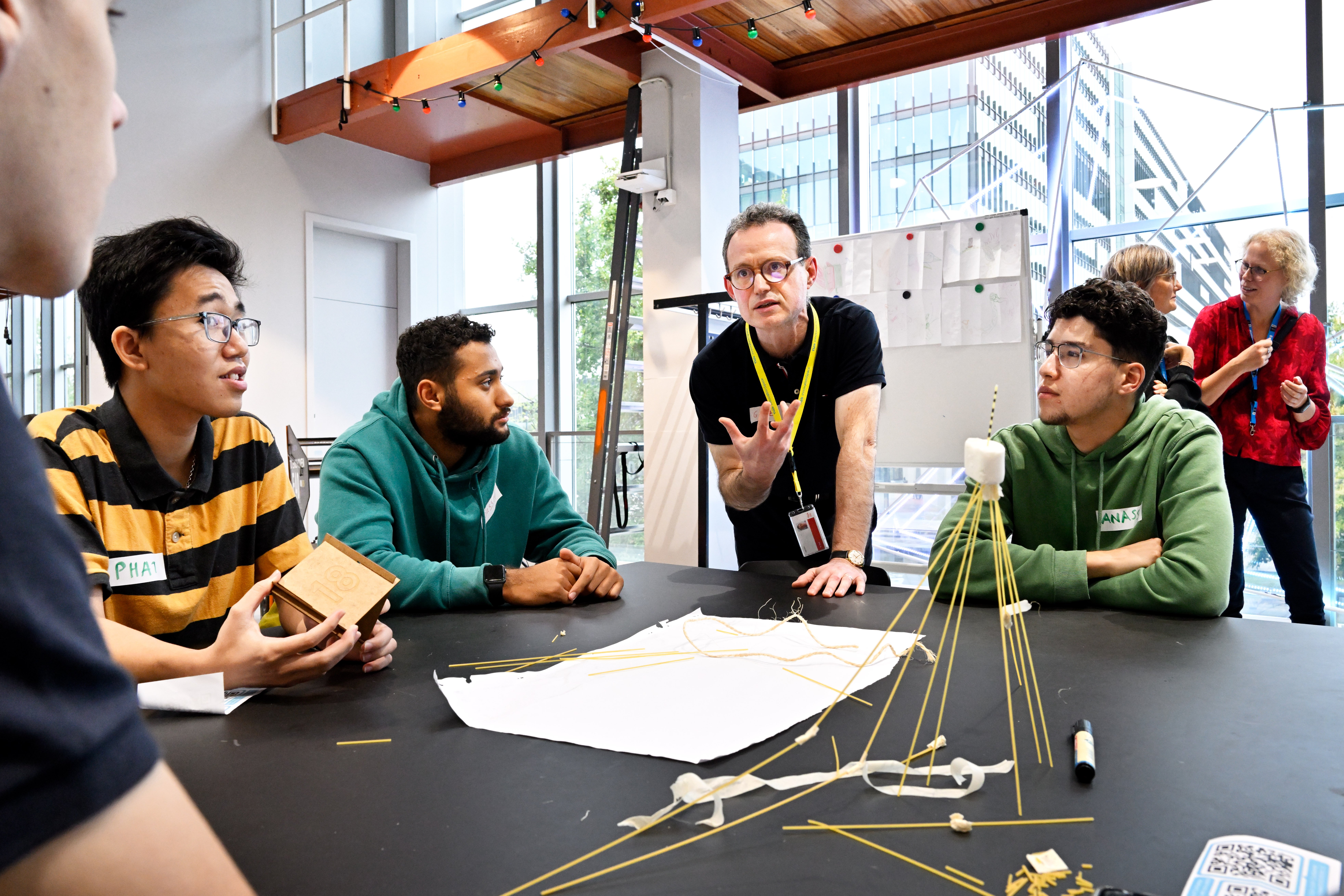
How can technology help you in preventing an egg to fall and break? And how do you ensure that a go-kart gets ‘smarter’? These and many other questions will be raised by primary school pupils on the AutoTech Event on Thursday, May 26 at the Automotive Campus in Helmond in the Dutch Technology Week.
 E52 publishes a series of articles in preparation for the Dutch Technology Week (23-29 May). This is the ninth part. Here the earlier parts.
E52 publishes a series of articles in preparation for the Dutch Technology Week (23-29 May). This is the ninth part. Here the earlier parts.
But there’s more, E52 found out in a conversation with Peter Cox (Brainport) on the future of education.
“The AutoTech is learning in a fun way,” Peter Cox explains. “Children want to investigate everything they see, for example how different components make a car work like it should. They are just amazed when they see what’s all inside the car of a truck. It ignites the imagination. That experience is very important.”
On Wednesday 25 May, elementary schools can visit the High Tech Campus, where pupils from grades 7 and 8 can get acquainted with different companies on the campus during High Tech 2 Discover. These are in no way ‘boring’ business trips. There is much to do for the kids. “Their excitement, their experience, that’s why we do it.” Enthusiastically Cox grabs his laptop and shows a video.
“This is so cool! Here you can see how children think. They naturally have an entrepreneurial attitude and want to discover the world. We are trying to stimulate this curiosity.”
Learning 3O
Cox refers to the 3O learning project that Brainport has worked out in collaboration with various schools in the region. 3O stands for research, design and entrepreneurship (onderzoeken, ontwerpen, ondernemen). Stepping away from linear education, to move into the area of interest of the student.
“It used to be that you were trained as a welder, or as a carpenter. This is no longer the case. Everything changes more rapidly than ever, thanks to new technologies and therefore, education must change as well. You used to see that primary school pupils who had been with the class to visit a company, that only two or three of them found it really interesting. The rest would come home and say that they had been given a Mars bar. But when you offer these pupils to think about what they find interesting or want to know, and let them make a choice, they will enjoy the triop much more – and consequently, will learn more.”
This places greater responsibility with the pupils, are these kids ready for that at such a young age? Cox thinks so, provided that you let them learn in small steps. “If someone can not swim, you don’t throw into the pool at once. As long as you accompany the children well and make them aware of what they are doing, then they can handle the responsibility perfectly well.”
Future
The future of education will increasingly focus on developing the so-called 21st century skills. Cox: “This all concerns cooperating, problem-oriented and problem-solving thinking, developing creativity. The developing process is just as important as the result. So: what do I learn? How do I do that? Children also communicate with experts on the topic they want to know something about. Then they start at the beginning again; have they learned what they wanted? If not, they go back to refine the questions. In Germany, there’s a lot more experience in this way of educating children than here in the Netherlands. If you see how some 10-year old kids there are reporting about learning processes, it would make Fontys students jealous.”
Also, the role of the teacher is changing because of this development, according to Cox. Teachers will increasingly take on the role of coach or mentor.
Front Runners
Brainport is working with several schools in the region that show interest in the transformation of teaching and learning ‘new’ skills. “The idea is to connect the front runners, together with teachers who want to go forward, so they can share knowledge and develop new ways of teaching.”
One of the ways to teach new skills to children was developed by a teacher from Helmond, Cindy Raaymakers. “She invented a kind of placemat, on which children can investigate a problem step by step. Maybe something very small, but this might completely change education in the near future.”







